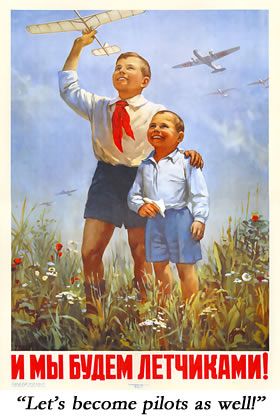What was the Cold War?
Citation: C N Trueman "What was the Cold War?" historylearningsite.co.uk. The History Learning Site, 25 May 2015. 22 Feb 2018.
The Cold War is the name given to the relationship that developed primarily between the USA and the USSR after World War Two. The Cold War was to dominate international affairs for decades and many major crises occurred – the Cuban Missile Crisis, Vietnam, Hungary and the Berlin Wall being just some. For many, the growth in weapons of mass destruction was the most worrying issue.

A
clash of very different beliefs and ideology – capitalism versus
communism – each held with almost religious conviction, formed the basis
of an international power struggle with both sides vying for dominance,
exploiting every opportunity for expansion anywhere in the world.
Note
that USSR in 1945 was Russia post-1917 and included all the various
countries that now exist individually (Ukraine, Georgia etc) but after
the war they were part of this huge country up until the collapse of the
Soviet Union (the other name for the USSR).
Before the war, America had depicted the Soviet Union as almost the devil-incarnate. The Soviet Union had depicted America likewise so their ‘friendship’ during the war was simply the result of having a mutual enemy – Nazi Germany.
In fact, one of America’s leading generals, Patton, stated that he felt
that the Allied army should unite with what was left of the Wehrmacht
in 1945, utilise the military genius that existed within it (such as the
V2’s etc.) and fight the oncoming Soviet Red Army. Churchill himself
was furious that Eisenhower, as supreme head of Allied command, had
agreed that the Red Army should be allowed to get to Berlin first ahead of the Allied army. His anger was shared by Montgomery, Britain’s senior military figure.
So the
extreme distrust that existed during the war, was certainly present
before the end of the war……..and this was between Allies. The Soviet
leader, Joseph Stalin,
was also distrustful of the Americans after Truman only told him of a
new terrifying weapon that he was going to use against the Japanese. The
first Stalin knew of what this weapon could do was when reports on
Hiroshima got back to Moscow.
So this
was the scene after the war ended in 1945. Both sides distrusted the
other. One had a vast army in the field (the Soviet Union with its Red
Army supremely lead by Zhukov) while the other, the Americans had the
most powerful weapon in the world, the A-bomb and the Soviets had no way
on knowing how many America had.
So what exactly was the Cold War?
In diplomatic terms there are three types of war.
Hot War : this is actual warfare. All talks have failed and the armies are fighting.
Warm War :
this is where talks are still going on and there would always be a
chance of a peaceful outcome but armies, navies etc. are being fully
mobilised and war plans are being put into operation ready for the
command to fight.
Cold War : this
term is used to describe the relationship between America and the
Soviet Union 1945 to 1980. Neither side ever fought the other – the
consequences would be too appalling – but they did ‘fight’ for their
beliefs using client states who fought for their beliefs on their behalf e.g. South Vietnam
was anticommunist and was supplied by America during the war while
North Vietnam was pro-Communist and fought the south (and the Americans)
using weapons from communist Russia or communist China. InAfghanistan,
the Americans supplied the rebel Afghans after the Soviet Union invaded
in 1979 while they never physically involved themselves thus avoiding a
direct clash with the Soviet Union.
The one time this process nearly broke down was the Cuban Missile Crisis.